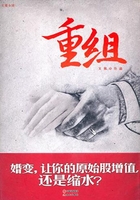THE SPENDINGS OF FANCY: FACTS ANSWER WITH SNEERS
For the nest two days Carrie indulged in the most high flown speculations.
Her fancy plunged recklessly into privileges and amusements which would have been much more becoming had she been cradled a child of fortune. With ready will and quick mental selection she scattered her meager four-fifty per week with a swift and graceful hand. Indeed, as she sat in her rocking-chair these several evenings before going to bed and looked out upon the pleasantly lighted street, this money cleared for its prospective possessor the way to every joy and every bauble which the heart of woman may desire. " I will have a fine time," she though.
Her sister Minnie knew nothing of these rather wild cerebrations, though they exhausted the markets of delight. She was too busy scrubbing the kitchen woodwork and calculating the purchasing power of eighty cents for Sunday's dinner. When Carrie had returned home, flushed with her first success and ready, for all her weariness, to discuss the now interesting events which led up to her achievement, the former had merely smiled approvingly and inquired whether she would have to spend any of it for car fare. This consideration had not entered in before, and it did not now for long affect the glow of Carrie's enthusiasm. Disposed as she then was to calculate upon that vague basis which allows the subtraction of one sum from another without any perceptible diminution, she was happy.
When Hanson came home at seven o'clock, he was inclined to be a little crusty-his usual demeanor before supper. This never showed so much in anything he said as in a certain solemnity of countenance and the silent manner in which he slopped about. He had a pair of yellow carpet slippers which he enjoyed wearing, and these he would immediately substitute for his soiled pair of shoes. This, and washing his face with the aid of common washing soap until it glowed a shiny red, constituted his only preparation for his evening meal. He would then get his evening paper and read in silence.
For a young man, this was rather a morbid turn of character, and so affected Carrie. Indeed, it affected the entire atmosphere of the flat, as such things are inclined to do, and gave to his wife's mind its subdued and tactful turn, anxious to avoid taciturn replies. Under the influence of Carrie's announcement he brightened up some what.
"You didn't lose any time, did you?" he remarked, smiling a little.
"No," returned Carrie with a touch of pride.
He asked her one or two more questions and then turned to play with the baby, leaving the subject until it was brought up again by Minnie at the table.
Carrie, however, was not to be reduced to the common level of observation which prevailed in the flat.
"It seems to be such a large company," she said, at one place. "Great big plate-glass windows and lots of clerks. The man I saw said they hired ever so many people."
"It's not very hard to get work now," put in Hanson, "if you look right."
Minnie under the warning influence of Carrie's good spirits and her husband's somewhat conversational mood, began to tell Carrie of some of the well-known things to see-things the enjoyment of which cost nothing.
"You'd like to see Michigan Avenue. There are such fine houses. It is such a fine street."
"Where is ' H.R. Jacob's'?" interrupted Carrie, mentioning one of the theatres devoted to melodrama which went by that name at the time.
"Oh, it's not very far from here," answered Minnie. " It's in Halstead Street, right up here."
"How I'd like to go there. I crossed Halstead Street to-day, didn't I?"
At this there was a slight halt in the natural reply. Thoughts are a strangely permeating factor. At her suggestion of going to the theatre, the unspoken shade of disapproval to the doing of those things which involved the expenditure of money-shades of feeling which arose in the mind of Hanson and then on Minnie-slightly affected the atmosphere of the table. Minnie answered "yes," but Carrie could feel that going to the theatre was poorly advocated here. The subject was put off for a little while until Hanson, through with his meal, took his paper and went into the front room.
When they were alone, the two sisters began a somewhat freer conversation, Carrie interrupting it to hum a little, as they worked at the dishes.
"I should like to walk up and see Halstead Street, if it isn't too far," said Carrie, after a time. " Why don't we go to the theatre tonight?"
"Oh, I don't think Sven would want to go to-night," returned Minnie. " He has to get up so early."
"He wouldn't mind-he'd enjoy it," said Carrie.
"No, he doesn't go very often," returned Minnie.
"Well, I'd like to go," rejoined Carrie. " Let's you and me go."
Minnie pondered a while, not upon whether she could or would go for that point was already negatively settled with her—but upon some means of diverting the thoughts of her sister to some other topic.
"We'll go some other time," she said at last, finding no ready means of escape.
Carrie sensed the root of the opposition at once.
"I have some money," she said. " You go with me.'
Minnie shook her head.
"He could go along," said Carrie.
"No, returned Minnie softly, and rattling the dishes to drown the conversation. "He wouldn't."
It had been several years since Minnie had seen Carrie, and in that time the latter's character had developed a few shades. Naturally timid in all things that related to her own advancement, and especially so when without power or resource, her craving for pleasure was so strong that it was the one stay of her nature. She would speak for that when silent on all else.
"Ask him," she pleaded softly.
Minnie was thinking of the resource which Carrie's board would add. It would pay the rent and would make the subject of expenditure a little less difficult to talk about with her husband. But if Carrie was going to think of running around in the beginning there would be a hitch somewhere. Unless Carrie submitted to a solemn round of industry and saw the need of hard work without longing for play, how was her coming to the city to profit them? These thoughts were not those of a cold, hard nature at all. They were the serious reflections of a mind which invariably adjusted itself, without much complaining, to such surroundings as its industry could make for it.
At last she yield enough to ask Hanson. It was a half-hearted procedure without a shade of desire on her part.
"Carrie wants us to go to the theatre," she said, looking in upon her husband. Hanson looked up from his paper, and they exchanged a mild look, which said as plainly as anything: " This isn't what we expected."
"I don't care to go," he returned. "What does she want to see?"
"H.R Jacob's," said Minnie.
He looked down at his paper and shook his head negatively.
When Carrie saw how they looked upon her proposition, she gained a still clearer feeling of their way of life. It weighted on her, but took no definite form of opposition.
"I think I'll go down and stand at the foot of the stairs," she said, after a time.
Minnie made no objection to this, and Carrie put on her hat and went below.
"Where has Carrie gone?" asked Hanson, coming back into the dinning-room when he heard the door close.
"She said she was going down to the foot of the stairs," answered Minnie. " I guess she just wants to look out a while."
"She oughtn't to be thinking about spending her money on theatres already, do you think?" he said.
"She just feels a little curious, I guess," ventured Minnie. "Everything is so new."
"I don't know," said Hanson, and went over to the baby, his forehead slightly wrinkled.
He was thinking of a full career of vanity and wastefulness which a young girl might indulge in, and wondering how Carrie could contemplate such a course when she had so little, as yet, with which to do.
On Saturday Carrie went out by herself-first toward the river, which interested her, and then back along Jackson Street, which was then lined by the pretty houses and fine lawns which subsequently caused it to be made into a boulevard. She was struck with the evidences of wealth, although there was, perhaps, not a person on the street worth more than a hundred thousand dollars. She was glad to be out of the flat, because already she felt that it was a narrow, humdrum place, and that interest and joy lay elsewhere. Her thoughts now were of a more liberal character, and she punctuated them with speculations as to the whereabouts of Drouet. She was not sure but that he might call anyhow Monday night, and, while she felt a little disturbed at the possibility, there was, nevertheless, just the shade of a wish that he would.
On Monday she arose early and prepared to go to work. She dressed herself in a worn shirt-waist of dotted blue percale, a skirt of light-brown serge rather faded, and a small straw hat which she had worn all summer at Columbia City. Her shoes were old, and her necktie was in that crumpled, flattened state which time and much wearing impart. She made a very average looking shop-girl with the exception of her features. These were slightly more even than common, and gave her a sweet, reserved, and pleasing appearance.
It is no easy thing to get up early in the morning when one is used to sleeping until seven and eight, as Carrie had been at home. She gained some inkling of the character of Hanson's life when, half asleep, she looked out into the dinning-room at six o'clock and saw him silently finishing his breakfast. By the time she was dressed he was gone, and she, Minnie, and the baby ate together, the latter being just old enough sit in a high chair and disturb the dishes with a spoon. Her spirits were greatly subdued now when the fact of entering upon strange and untried duties confronted her. Only the ashes of all her fine fancies were remaining-ashes still concealing, never the less, a few red embers of hope. So subdued was she by her weakening nervous, that she ate quite in silence. going over imaginary conceptions of the character of the shoe company, the nature of the work, her employer's attitude. She was vaguely feeling that she would come in contract with the great owners, that her work come in contract with the great owners, that her work would be where grave, stylishly dressed men occasionally look on.
"Well, good luck," said Minnie, when she was ready to go. They had agreed it was best to walk, that morning at least, to see if she could do it every day-sixty cents a week for car fare being quite an item under the circumstances.
"I'll tell you how it goes to-night," said Carrie.
Once in the sunlit street, with labourers tramping by in either direction, the horse-cars passing crowded to the rails with the small clerks and floor help in the great wholesales houses, and men and women generally coming out of doors and passing about the neighourhood, Carrie felt slightly reassured. In the sunshine of the morning, beneath the wide, blue heavens, with a fresh wind astir, what fears, except the most desperate, can find a harbourage? In the night, or the gloomy chambers of the day, fears and misgivings wax strong, but out in the sunlight there is, for a time, cessation even of the terror of death.
Carrie went straight forward until she crossed the river, and then turned into Fifth Avenue. The thoroughfare, in this part, was like a walled canon of brown stone and clean. Trucks were rumbling in increasing numbers; men and woman, girls and boys were moving onward in all directions. She met girls of her own age, who looked at her as if with contempt for her diffidence. She wondered at the magnitude of this life and at the importance of knowing much in order to do anything in it at all. Dread at her own inefficiency crept upon her. She would not know how, she would not be quick enough. Had not all the other places refused her because she did not know something or other? She would be scolded, abused, ignominiously discharged.
It was with weak knees and a slight catch in her breathing that she came up to the great shoe company at Adams and Fifth Avenue and entered the elevator. When she steeped out on the fourth floor there was no one at hand, only great aisles of boxes piled to the ceiling. She stood, very much frightened, awaiting some one.
Presently Mr. Brown came up. He did not seem to recognise her.
"What is it you want?" he inquired.
Carrie's heart sank.
"You said I should come this morning to see about work—"
"Carrie Meeber."
"Yes," said he. "You come with me."
He led the way through dark, box-lined aisles which had the smell of new shoes, until they came to an iron door which opened into the factory proper. There was a large, low-ceiled room, with clacking, rattling machines at which men in white shirt sleeves and blue gingham aprons were working. She followed him diffidently through the clattering automatons, keeping her eyes straight before her, and flushing slightly. They crossed to a far corner and took an elevator to the sixth floor. Out of the array of machines and benches, Mr. Brown signaled a foreman.
"This is the girls," he said, and turning to Carrie, "You go with him." He then returned, and Carrie followed her new superior to a little desk in a corner, which he used as a kind of official center.
"You've never worked at anything like this before, have you?" he questioned, rather sternly.
"No, sir," she answered.
He seemed rather annoyed at having to bother with such help, but put down her name and then led her across to where a line of girls occupied stools in front of clacking machines. On the shoulder of one of the girls who was punching eye-holes in one piece of the upper, by the aid of the machine, he put his hand.
"You," he said, "show this girl how to do what you're doing. When you get through, come to me."
The girl so addressed rose promptly and gave Carrie her place.
"It isn't hard to do," she said, bending over. "You just take this so, fasten it with this clamp, and start the machine."
She suited action to work, fastened the piece of leather, which was eventually to form the right half of the upper of a man's shoe, by little adjustable clamps, and pushed a small steel rod at the side of the machine. The latter jumped to the task of punching, with sharp, snapping clicks, cutting circular bits of leather out of the side of the upper, leaving the holes which were to hold the laces. After observing a few times, the girl let her work at it alone. Seeing that it was fairly well done, she went away.
The pieces of leather came from the girl at the machine to her right, and were passed on to the girl at her left. Carrie saw at once that an average speed was necessary or the work would pile up on her and all those below would be delayed. She had no time to look about, and bent anxiously to her task. The girls at her left and right realized her predicament and feelings, and, in a way, tried to aid her, as much as they dared, by working slower.
At this task she labored incessantly for some time, finding relief from her own nervous fears and imaginings in the humdrum, mechanical movement of the machine. She felt, as the minutes passed, that the room was not very light. It had a thick odor of fresh leather, but that did not worry her. She felt the eyes of the other help upon her, and troubled lest she was not working fast enough.
Once, when she was fumbling at the little clamp, having made a slight error in setting in the leather, a great hand appeared before her eyes and fastened the clamp for her. It was the foreman. Her heart thumped so that she could scarcely see to go on.
"Start your machine," he said, "start your machine. Don't keep the line waiting."
This recovered her sufficiently and she went excitedly on, hardly breathing until the shadow moved away from behind her. Then she heaved a great breath.
As the morning wore on the room became hotter. She felt the need of a breath of fresh air and a drink of water but did not venture to stir. The stool she sat on was without a back or foot-rest, and she began to feel uncomfortable. She found, after a time, that her back was beginning to ache. She twisted and turned from one position to another slightly different, but it did not ease her for long. She was beginning to weary.
"Stand up, why don't you?" said the girl at her right without any form of introduction. " They won't care."
Carrie looked at her gratefully. "I guess I will," she said.
She stood up from her stool and worked that way for a while, but it was a more difficult position. Her neck and shoulder ached in bending over. The spirit of the place impressed itself on her in a rough way. She did not venture to look around, but above the clack of the machine she could hear an occasional remark. She could also note a thing or two out of the side of her eye.
"Did you see Harry last night?" said the girl at her left, addressing her neighbor
"No."
"You ought to have seen the tie he had on. Gee, but he was a mark."
"S-s-t," said the other girl, bending over her work.
The first, silenced, instantly assumed a solemn face. The foreman passed slowly along, eyeing each worker distinctly. The moment he was gone, the conversation was resumed again.
"Say," began the girl at her left, "what do you think he said?"
"I don't know."
"He said he saw us with Eddie Harris at Martin's last night."
"No!" They both giggled.
A youth with tan-colored hair, that needed clipping very badly, came shuffling along between the machines, bearing a basket of leather findings under his left arm, and pressed against his stomach. When near Carrie, he stretched out his right hand and gripped one girl under the arm.
"Aw, let me go," she exclaimed angrily. "Duffer."
He only grinned broadly in return.
"Rubber!" he called back as she looked after him.
There was nothing of the gallant in him.
Carrie at last could scarcely sit still. Her legs began to tire and she wanted to get up and stretch. Would noon never come? It seemed as if she had worked an entire day. She was not hungry at all, but weak, and her eyes were tired, straining at the one point where the eye-punch came down. The girl at the right noticed her squirmings and felt sorry for her. She was concentrating herself too thoroughly- what she did really required less mental and physical strain. There was nothing to be done, however. The halves of the uppers came piling steadily down. Her hands began to ache at the wrists and then in the fingers and towards the last she seemed one mass of dull, complaining muscles, fixed in an eternal position and performing a single mechanical movement which become more and more distasteful, until at last it was absolutely nauseating. When she was wondering whether the strain would ever cease, a dull-sounding bell clanged somewhere down an elevator shaft, and the end came. In a instant there was a buzz of action and conversation. All the girls instantly left their stools and hurried away in an adjoining room, men passed through, coming from some department which opened on the right. The whirling wheels began to sing in a steadily modifying key, until at last they died away in a low buzz. There was an audible stillness, in which the common voice sounded strange.
Carrie got up and sought her lunch box. She was stiff, a little dizzy, and very thirsty. On the way to the small space portioned off by wood, where all the wraps and lunches were kept, she encountered the foreman, who started at her hard.
"Well," he said, "did you get along all right?"
"I think so," she replied, very respectfully.
"Um," he replied, for want of something better, and walked on.
Under better material conditions, this kind of work would not have been so bad, but the new socialism which involves pleasant working conditions for employees had not then taken hold upon manufacturing companies.
The place smelled of the of the oil of the machines and the new leather-a combination which, added to the stale odors of the building, was not pleasant even on cold weather. The floor, though regularly swept every evening, presented a littered surface. Not the slightest provision had been made for the comfort of the employees, the idea being that something was gained by giving them as little and making the work as hard and unremunerative as possible. What we know of foot-rests, swivel-back chairs, dinning-rooms for the girls, clean aprons and curling irons supplied free, and decent cloak room, were unthought of. The washrooms were disagreeable, crude, if not foul places, and the whole atmosphere was sordid.
Carrie looked about her, after she had drunk a tinful of water from a bucket in one corner, for a place to sit and eat. The other girls had ranged themselves about the windows or the work-benches of those of the men who had gone out. She saw no place which did not hold a couple or a group of girls, and being too timid to think of intruding herself, she sought out her machine and, seated upon her stool, opened her lunch on her lap. There she sat listening to the chatter and comment about her. It was for the most part, silly and graced by the current slang, Several of the men in the room exchanged compliments with the girls at long range.
"Say, Kitty," called to a girl who was doing a waltz step in a few feet of space near one of the windows, "are you going to the ball with me?"
"Look out, Kitty," called another, "you'll jar your back hair."
"Go on, Rubber," was her only comment.
As Carrie listened to this and much more of similar familiar badinage among the men and girls, she instinctively withdrew into herself. She was not used to this type, and felt that there was something hard and low about it all. She feared that the young boys about would address such remarks to her-boys who, beside Drouet, seemed uncouth and ridiculous. She made the average feminine distinction between clothes, putting worth, goodness, and distinction in a dress suit, and leaving all the unlovely qualities and those beneath notice in overalls and jumper.
She was glad when the short half hour was over and the wheels began to whirr again. Though wearied, she would be inconspicuous. This illusion ended when another young man passed along the aisle and poked her indifferently in the ribs with his thumb. She turned about, indignation leaping to her eyes, but he had gone on and only once turned to grin. She found it difficult to conquer an inclination to cry.
The girl next her noticed her state of mind. "Don't you mind," she said. "He's too fresh."
Carrie said nothing, but bent over her work. She felt as though she could hardly endure such a life. Her idea of work had been so entirely different. All during the long afternoon she thought of the city outside and its imposing show, crowds, and fine buildings. Columbia City and the better side of her home life came back. By three o'clock she was sure it must be six, and by four it seemed as if they had forgotten to note the hour and were letting all work overtime. The foreman became a true ogre, prowling constantly about, keeping her tied down to her miserable task. What she heard of the conversation about her only made her feel sure that she did not want to make friends with any of these. When six o'clock came she hurried eagerly away, her arms aching and her limbs stiff from sitting in one position.
As she passed put along the hall after getting her hat, a young machine hand, attracted by her looks, made bold to jest with her.
"Say, Maggie," he called, "if you wait, I'll walk with you."
It was thrown so straight in her direction that she knew who was meant, but never turned took.
In the crowded elevator, another dusty, toil-stained youth tried to make an impression on her by leering in her face.
One young man, waiting on the walk outside for the appearance of another, grinned at her as she passed.
"Ain't going my way, are you?" he called jocosely.
Carrie turned her face to the west with a subdued heart.
As she turned the corner, she saw through the great shiny window the small desk at which she had applied. There were the crowds, hurrying with the same buzz and energy yielding enthusiasm. She felt a slight relief, but it was only at her escape. She felt ashamed in the face of better dressed girls who went by. She felt as though she should be better served, and her heart revolted.















